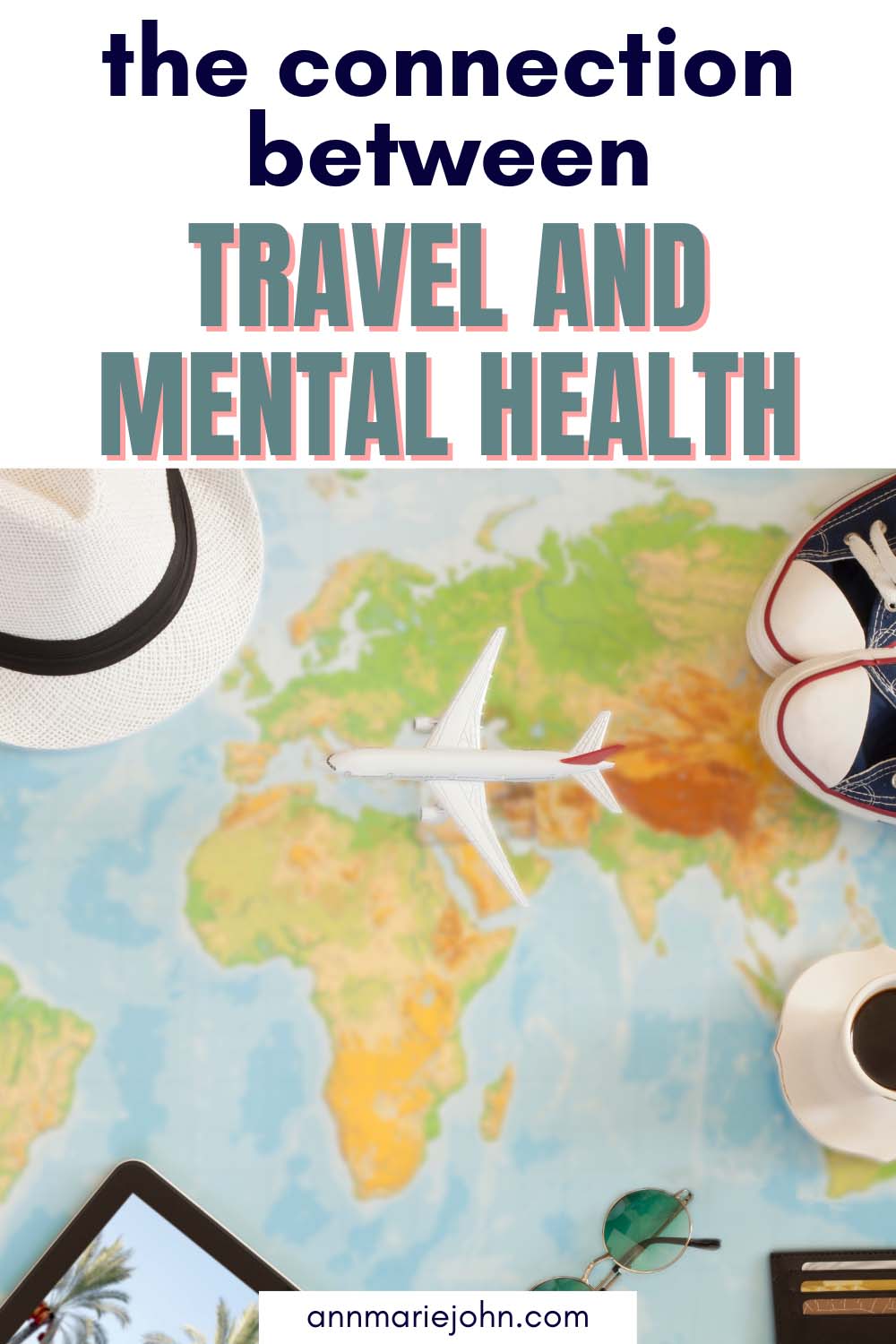Explore the profound connection between travel and mental health. Discover how travel positively impacts well-being and fosters mental resilience.

In a fast-paced world filled with daily stresses, finding moments of solace and rejuvenation is essential for maintaining mental well-being. One powerful avenue that often goes overlooked is travel. Beyond its scenic landscapes and cultural richness, travel holds the potential to positively influence our mental health. Let’s delve into the profound connection between travel and mental well-being.

1: Escaping the Routine:
Routine can be a silent contributor to stress and mental fatigue. Travel disrupts this monotony, offering a break from the ordinary. Whether it’s a weekend getaway or an international adventure, stepping out of the routine allows the mind to reset and recharge.
2: Exposure to New Cultures:
Immersing oneself in diverse cultures opens the mind to new perspectives and experiences. This exposure fosters personal growth and can lead to increased empathy, tolerance, and a broader understanding of the world. Such cultural enrichment has a positive impact on mental health by promoting a sense of interconnectedness.
3: Nature’s Therapeutic Touch:
Many travel experiences involve nature, whether it’s a beach retreat, a mountain hike, or a stroll through a serene forest. Nature has proven therapeutic benefits, reducing stress and anxiety and promoting overall well-being. The combination of physical activity and natural surroundings can act as a powerful remedy for mental health issues.
4: Mindful Travel Practices:
Intentional and mindful travel can enhance the positive effects on mental health. Practices like meditation, journaling, or simply being present in the moment during your travels can contribute to a sense of inner peace and mindfulness. These practices can be integrated seamlessly into various travel experiences.
5: Social Connections:
Travel often involves meeting new people and forming connections. Social interactions play a crucial role in mental health, providing a sense of belonging and reducing feelings of isolation. Shared experiences with fellow travelers or interactions with locals can create lasting memories and contribute to a positive mental state.
6: Personal Reflection and Self-Discovery:
Travel often provides a unique opportunity for introspection and self-discovery. Being in new environments and away from familiar surroundings allows individuals to reflect on their lives, goals, and values. This process of self-discovery can lead to increased self-awareness and a deeper understanding of oneself, contributing positively to mental health.
7: Overcoming Challenges and Building Resilience:
Navigating the uncertainties of travel, such as unexpected detours, language barriers, or cultural differences, can foster resilience and adaptability. Facing and overcoming challenges during your journeys can translate into increased confidence and a sense of accomplishment. These qualities are valuable not only during travel but also in daily life, promoting mental resilience in the face of adversity.
8: Digital Detox and Unplugging:
Travel provides an opportunity to disconnect from the constant barrage of digital stimuli. Taking a break from emails, social media, and work-related tasks allows the mind to unwind and rejuvenate. A digital detox during travel can lead to improved focus, reduced anxiety, and better sleep, contributing significantly to mental well-being.
9: Time Away from Work Stress:
For many individuals, work-related stress is a significant contributor to mental health issues. Travel provides a much-needed break from the demands of the workplace, allowing individuals to detach from work-related stressors. Taking time away from the routine of work can lead to improved mental clarity, increased creativity, and a refreshed perspective upon returning.
10: Fostering a Sense of Adventure:
Embracing new experiences and stepping out of one’s comfort zone during travel can instill a sense of adventure. This sense of adventure contributes to the release of dopamine, the “feel-good” neurotransmitter, promoting a positive mood and reducing feelings of boredom or stagnation that can negatively impact mental health.
11: Incorporating Wellness Retreats:
Wellness-focused travel experiences, such as spa retreats, yoga retreats, or mindfulness retreats, provide a dedicated space for mental and physical rejuvenation. These specialized retreats often offer activities and practices specifically designed to enhance well-being, making them an intentional and immersive way to prioritize mental health during travel.
By recognizing and embracing the multifaceted benefits of travel, individuals can harness its transformative power to promote and maintain positive mental health. Whether seeking moments of tranquility, cultural enrichment, or personal growth, travel emerges as a holistic approach to well-being in an ever-evolving world.

Frequently Asked Questions (FAQs)
Q1: Can any type of travel positively impact mental health?
A1: Yes, various forms of travel, from short weekend getaways to extensive international adventures, can have positive effects on mental health. The key lies in the individual’s intention to break routine, experience new environments, and engage in activities that promote well-being.
Q2: How can I make my travel experiences more mindful?
A2: Mindful travel involves being fully present in the moment. Incorporate practices such as meditation, journaling, or mindful breathing during your travels. Pay attention to your surroundings, savor the experiences, and limit distractions to enhance the mindfulness aspect of your journey.
Q3: What if I find it challenging to disconnect digitally during travel?
A3: If unplugging is challenging, consider setting specific time limits for digital usage. Designate certain periods for checking emails or social media, and use the rest of the time to immerse yourself in your travel experiences. This gradual approach can help ease the transition to a digital detox.
Q4: Are group travel experiences more beneficial for mental health than solo travel?
A4: Both group and solo travel have unique benefits. Group travel provides social connections and shared experiences, promoting a sense of belonging. Solo travel, on the other hand, offers opportunities for self-reflection and personal growth. The choice depends on individual preferences and goals.
Q5: Can travel contribute to long-term improvements in mental health?
A5: Yes, travel has the potential to contribute to long-term improvements in mental health by fostering resilience, promoting self-discovery, and providing a break from routine stressors. Integrating the lessons learned during travel into daily life can lead to sustained positive effects on mental well-being.
Q6: How can individuals manage travel-related stress and anxiety?
A6: Planning ahead, having a flexible itinerary, and being open to unexpected experiences can help manage travel-related stress. Additionally, incorporating mindfulness practices, such as deep breathing or meditation, can be effective tools for reducing anxiety and promoting relaxation during your journey.
Q7: Are there specific destinations that are more conducive to mental well-being?
A7: While the impact of travel on mental health is subjective, destinations with natural beauty, cultural richness, and opportunities for relaxation are often considered beneficial. However, the key is to choose a destination that aligns with your personal interests and preferences to maximize the positive effects on mental well-being.
Conclusion:
As we navigate the complexities of modern life, considering travel as more than just a leisure activity is crucial. It can be a potent tool for enhancing mental health, offering a holistic approach to well-being. So, the next time you plan a journey, remember that you’re not just exploring new destinations; you’re investing in your mental health and embracing the transformative power of travel.
